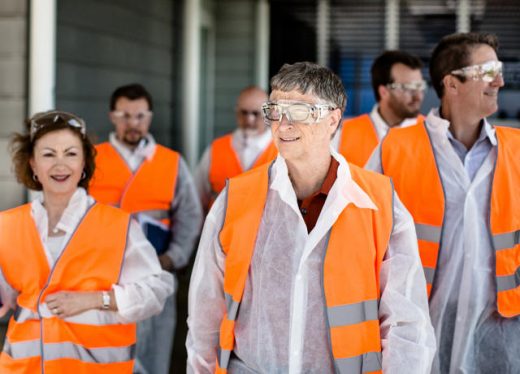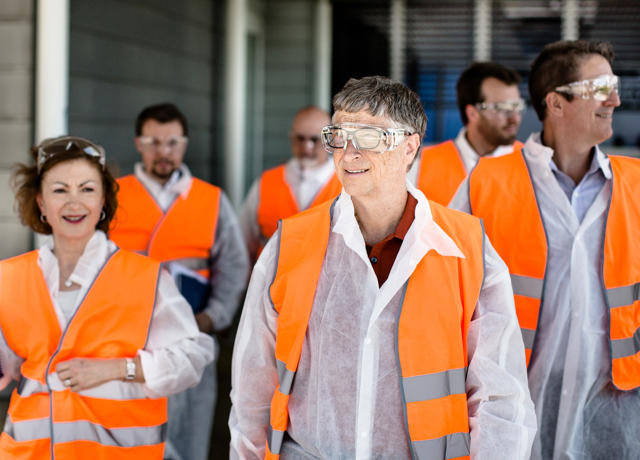Bill Gates Is Working With A Swiss Perfume Company To Make Toilets Smell Better
Roughly 800,000 children in the developing world die each year from pathogens and diseases associated with unsafe water and poor sanitation. Two huge factors are access to toilets (1 billion people don’t yet have them), and poor service for the existing ones (nearly 3 billion are affected by incorrectly dumped untreated waste). The end result is often contaminated food and water, which leads to widespread sickness.
The first step to fixing that is by providing more toilets and better infrastructure, which Bill Gates is attempting to do with his quest to build a better toilet for the developing world. But after traveling extensively in affected areas, Gates realized there is a computing world corollary being overlooked: More and better technology alone can’t change human behavior if the user experience is off. For instance, the most common commode type in poor countries is a pit latrine, basically a sturdy outhouse with little more than a hole in the ground and place to squat. These become stinky fast, which leads to people either avoiding them entirely or emptying them in unsanitary ways.
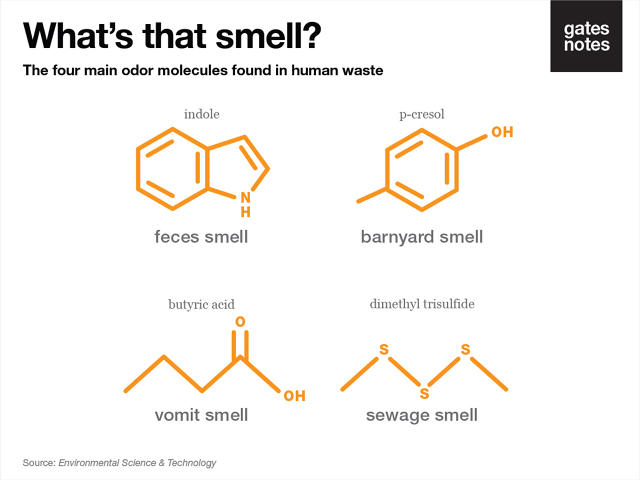
“I have seen what toilets are like for the world’s poorest and I have used—and smelled—them myself. It is pretty awful,” Gates tells Co.Exist in an email. “I wanted to see if we could fix the malodor problem, which would help people right now, while we also design new toilets and help governments solve the big infrastructure challenges of getting better sanitation systems.”
Rather than just create a scented cover-up, the foundation partnered with Firmenich, a 120-year-old Swiss fragrance and flavor company, to attack stool stench in an entirely new way. Firmenich helped make Hugo Boss and Ralph Lauren cologne, along with a variety of other odoriferous household and body care products. But with Gates, they’re honing in on exactly which molecules create bad toilet smells, and what smell receptors those trigger. The goal is to design chemical compounds that beat poop stink at its own game, by traveling the same neural pathway to block signals of revulsion (with a nice fruity, floral, or citrus undertone).
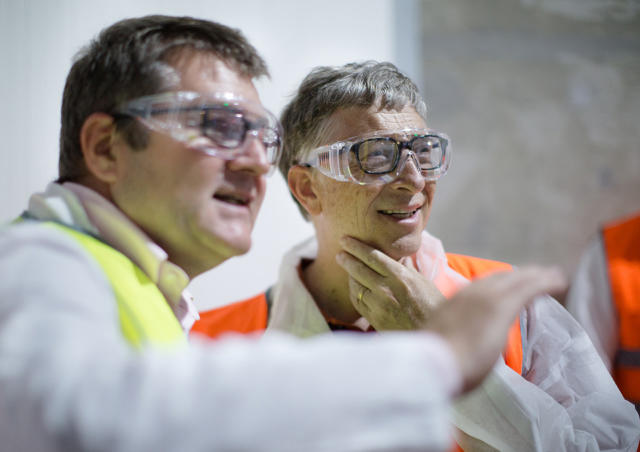
Gates dives deeper into the exact theory and process in a post on his Gates Notes blog, which coincides with the United Nation’s upcoming World Toilet Day. He compares the tactic to noise cancelling head phones: “Electronics in the headsets create a sound wave that is 180 degrees out of phase with the ambient noise that needs to be blocked. This wave cancels unpleasant sounds and allows you to enjoy peace and quiet. Likewise, the ingredients in the fragrances developed by Firmenich inhibit the activation of the olfactory receptors sensitive to malodors. By blocking the receptors, our brains do not perceive the bad smells.” Below is a video about his experience.
To pull off that feat, however, Firmenich had to conduct a fairly unappealing field study. First, they collected stool samples from India, Africa, the U.S, and Switzerland, and synthesized them to define a universal spectrum of stink. Those findings were published in the journal Environmental Science & Technology in 2013. The study found that toilet odor is made up of over 200 chemical compounds, but not all are awful. Four in particular seem associated with raunchy odors: indole (fecal), p-cresol (barnyard), dimethyl tri-sulfide (sewage), and butyric acid (vomit/cheese).
Next, the company created mock latrines with customizable heat, humidity, and ventilation inside their research facility in Geneva. After all, things waft differently in different situations, necessitating a complicated chemical cocktail to counteract them.
Gates recently visited the facility and, after some comparative sniff-testing, says they’ve nearly cracked the code. “There was no evidence of repulsive odor I had experienced earlier,” he notes on his blog. “Instead of stinky sewage, sweat, and ripe cheese, I sniffed a pleasant floral scent.” The trick now will be to make those products that deliver a better smelling experience equally appealing.
For Firmenich, that means finding a business to work with that can take their concepts to market in an affordable and widely accessible way. Aerosol sprays are likely out because they’re too pricey. Ideally, the scent-swapper could be added to powdered bleach or a regional equivalent of those iconic tree-shaped hanging deodorizers. The exact delivery mechanism will likely vary depending on what’s culturally acceptable. “The goal is to find what works for the poor people who are the customers who would maintain this,” says Doulaye Koné, who is the deputy director of the Gates Foundation’s Water, Sanitation and Hygiene programs and grew up experiencing the trouble firsthand in a rural area of Cote d’Ivoire.
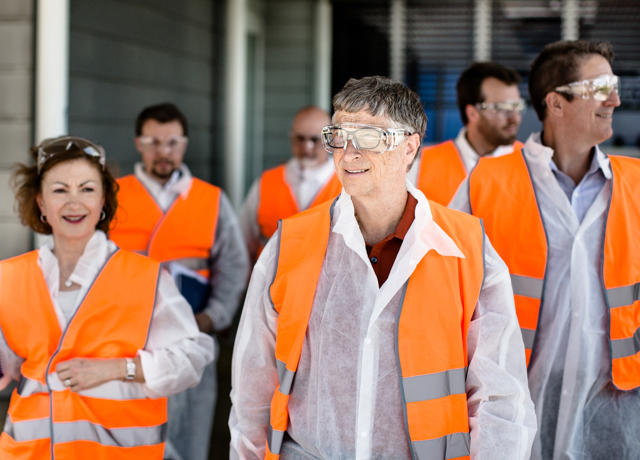
Firmenich already works with the top anti-bacterial soap brands to make hand sanitization more appealing in developing countries, and has a long track record of similar social good projects. (Little known fact: In 1939, their head of research won a Nobel Prize for work that included developing a line of synthetic musks originally harvested from the glands of mountain goats.) The company is a founding member of the Toilet Board Coalition, which includes Unilever, Kimberly Clark, and numerous government and health officials trying to find new ways to solve the sanitation crisis. “There’s no point in having developed such promising technologies if they don’t reach the populations most in need,” says Genevieve Berger, Firmenich’s chief research officer for corporate R&D.
“This one is unusual for us, since there’s not really a similar sensory experience with other global health issues,” Gates tells Co.Exist. “But it is a good example of how we approach problems from a lot of different directions instead of trying to find a single solution. There are some things that we can solve right now that will make people’s lives better today, and there are other big, systemic changes that take many years to put in place and see improvements.
He says the foundation took a similar approach with malaria, “where we work on solutions for today, like distributing bed-nets, while also funding research for vaccines and eradication.” So far, the strategy seems to be working.
Gates is working with Firmenich to develop scents that cancel out the smell of poop.
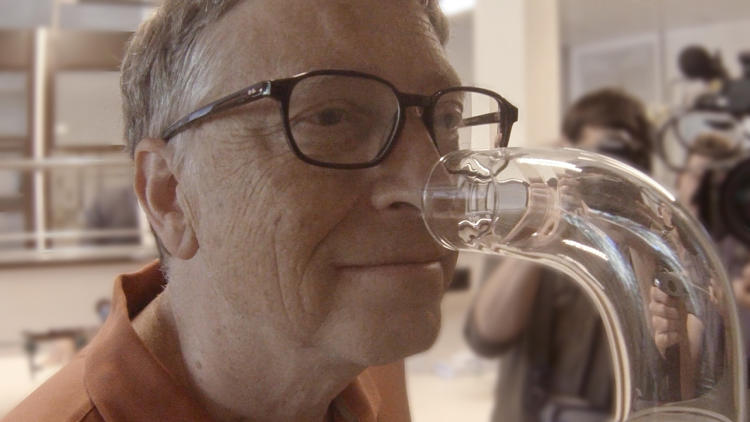
To do this, the company first had to figure out what chemicals make poop smell bad.
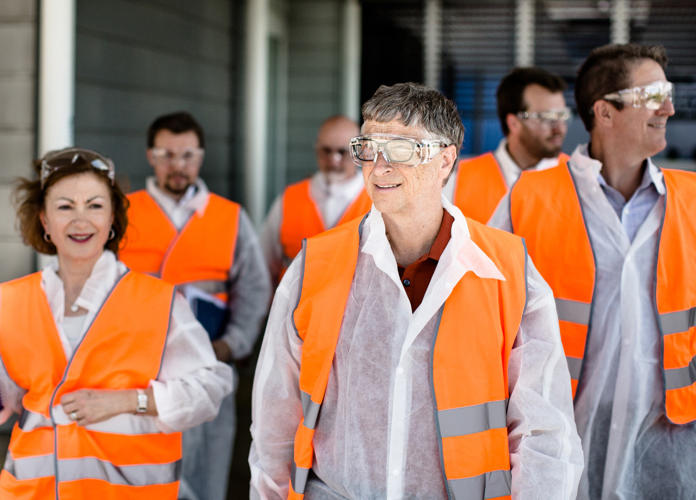
It’s these four compounds.
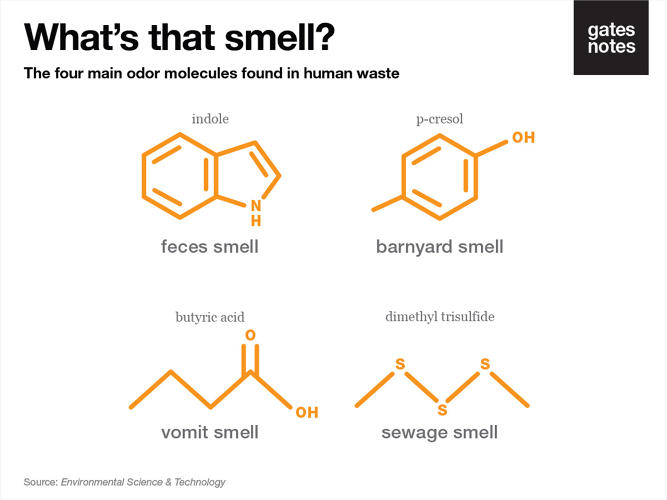
Then they developed odors to counteract them, like noise-cancelling headphones cancel out sound.
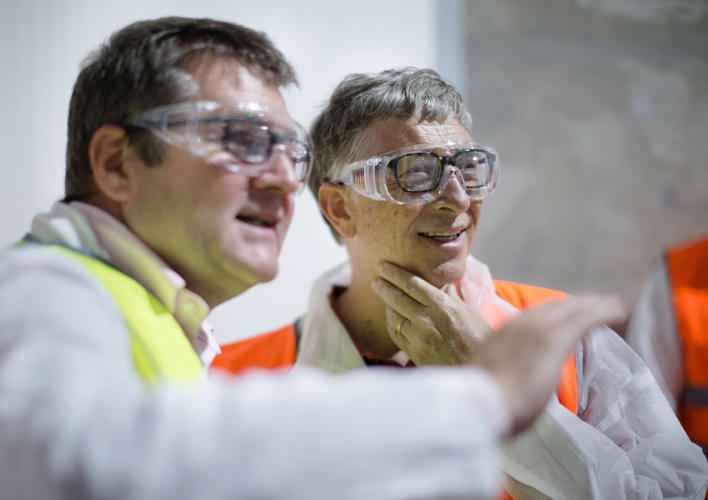
Fast Company , Read Full Story
(42)

